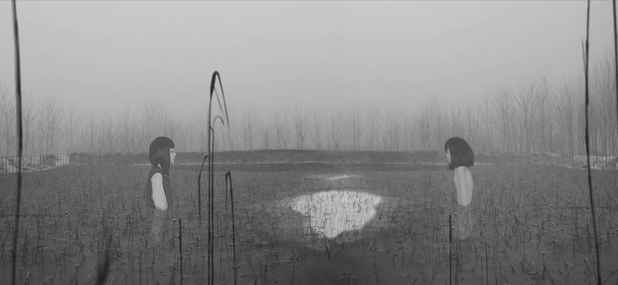Cui Xiuwen Exhibition
Klein Sun Gallery

This event has ended.
Eli Klein Fine Art presents an exhibition of new photography by Cui Xiuwen, one of China's foremost female photographers. This is the artist's first solo exhibition in New York.
Cui Xiuwen's latest series, Existential Emptiness, pursues her reflection on the woman as individual in modern China. This body of work furthers her focus from physical to spiritual and illustrates her examination and analysis of the woman's psyche. The girl protagonist, considered the artist's alter ego, has matured and is accompanied by a life-size doll resembling her. Inspired from her own experiences, the appearance of the puppet without strings recalls Japanese Bunraku theatre, discovered by Cui Xiuwen on a recent trip to Japan. Companion, reflection, and baggage of the now familiar character, the doll complements the girl and acts as alter ego as well. The two figures evoke the duality of body and soul, yin and yang, life and lifelessness. The presence and absence, posture, closeness or distance of the doll in each work capture the relationship between the two-they are intertwined.
The title of the series also expresses duality. Existentialism is centered on the analysis of existence and the way humans find themselves being in the world. It is a philosophy concerned with finding the self and the meaning of life through the individual's free will, choice, and personal responsibility. In Buddhism, the realization of the emptiness of inherent existence is a "state of pure consciousness," in which the practitioner realizes all particular objects and images to be appearances of the subjective mind. While Existentialism is founded on individual interpretation of experiences, emptiness voids the presuppositions which each person adds to experience to make sense of it. Where Existentialism focuses on exploration of the self, emptiness is a direct experience of events themselves. Emptiness relates to meditation and detachment of the mind.
The digital photographs are mostly monochrome. The palette and format are inspired by traditional Chinese ink painting. The scenes take place in the ice- and snow-covered mountains of Northern China. The quiet, ethereal landscape acts as a perfect setting for exploring the mind. The black and white tones contrast with the vividly colored images of the Palace in Cui Xiuwen's Angel series, which focuses on the body. The physical appearance of the doll - obvious joints, revealed ribcage bones and scarred womb - alludes to the violence of a woman's experiences and how they impress upon her spirit. The sparseness of the scenes creates an absence of temporal sense.
Media
Schedule
from January 19, 2011 to February 27, 2011
Opening Reception on 2011-01-19 from 18:00 to 21:00